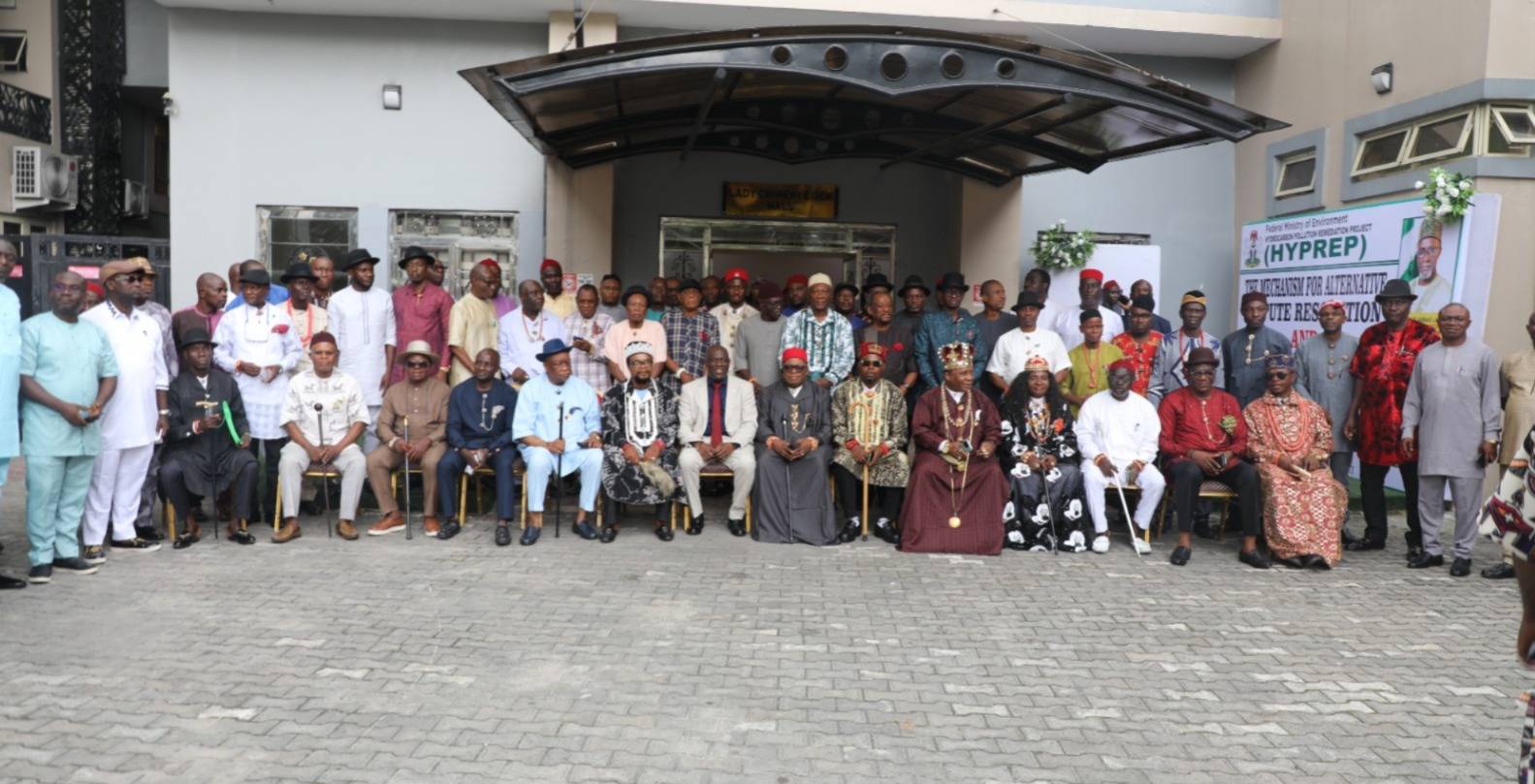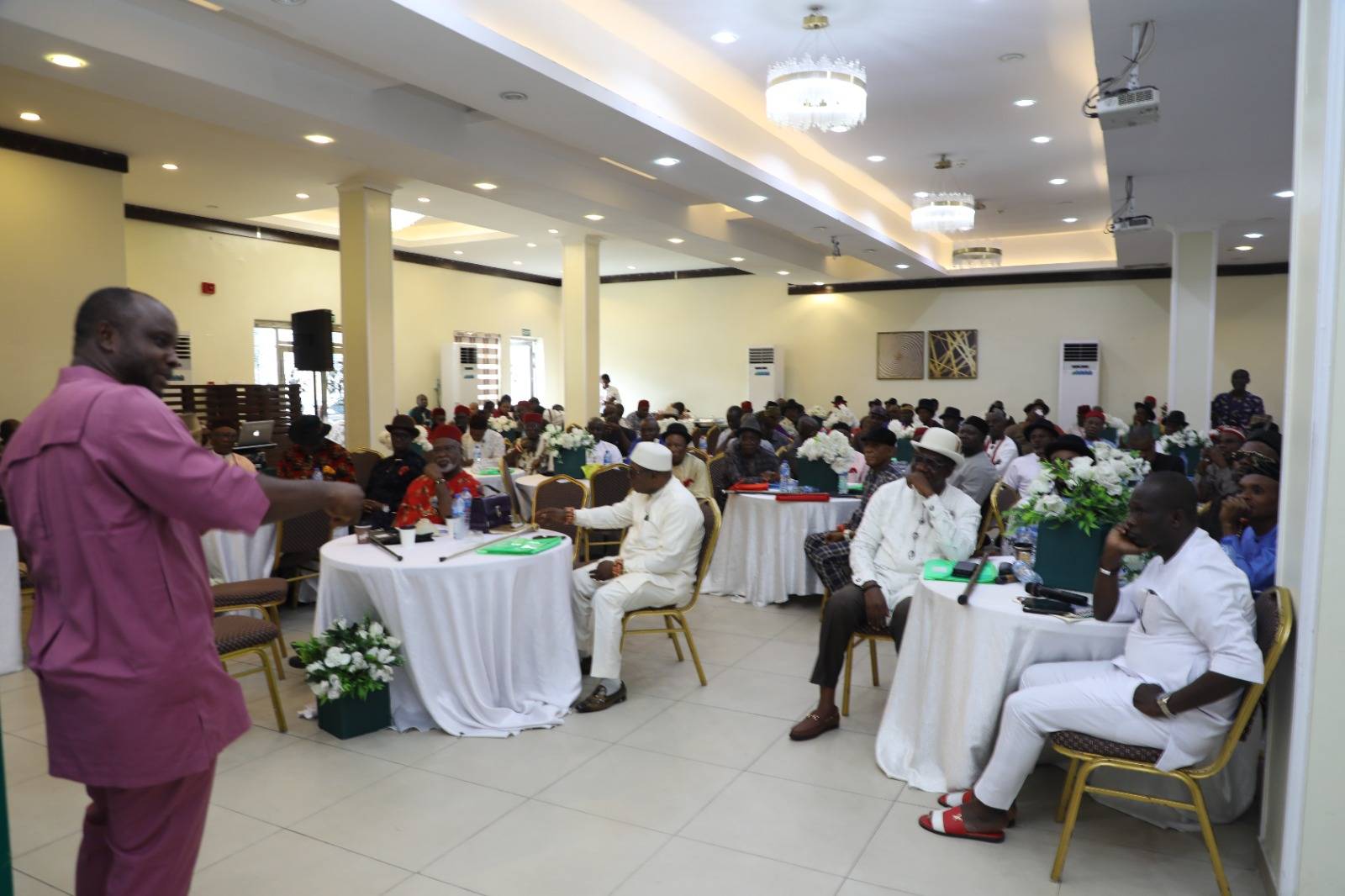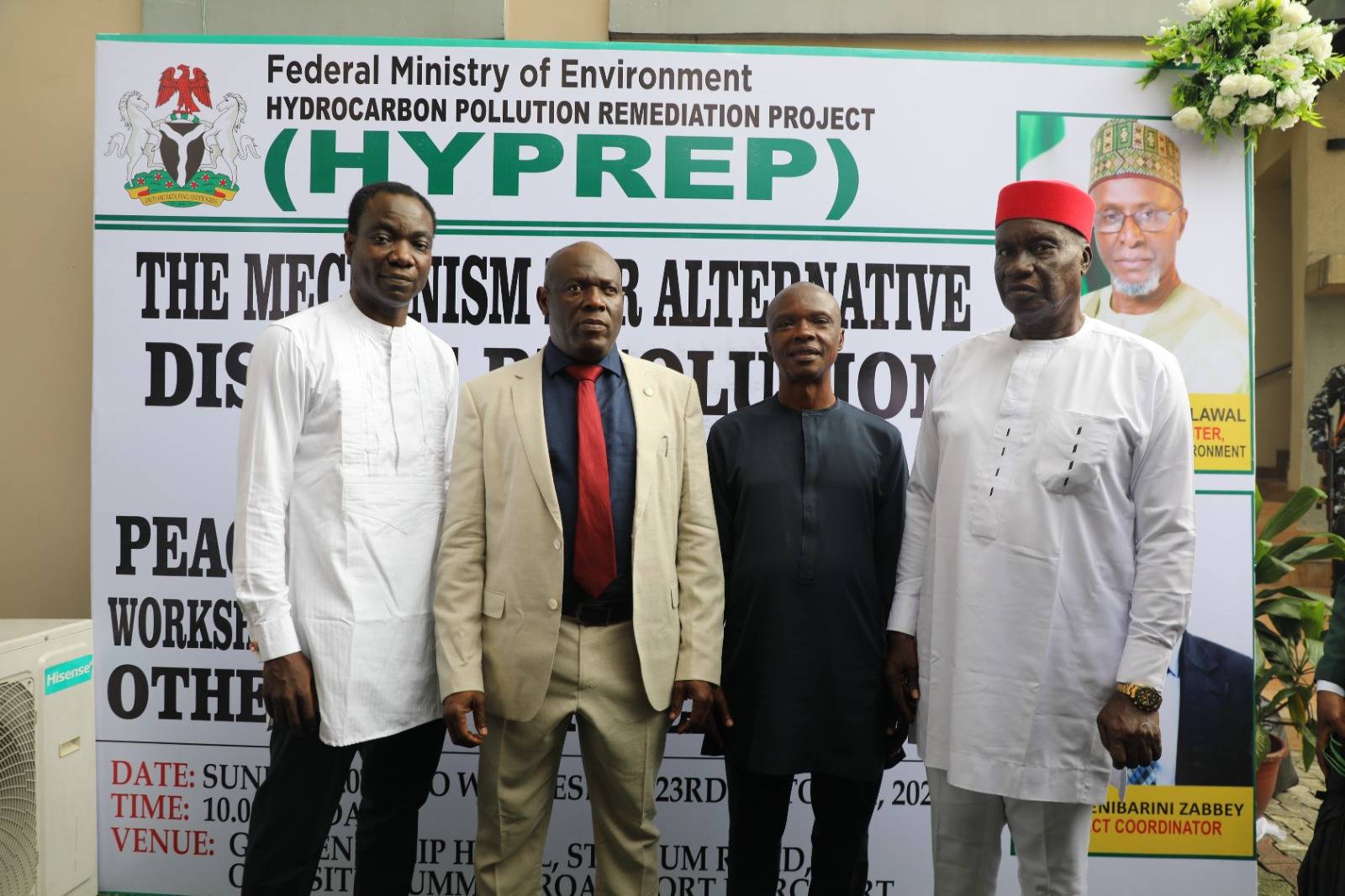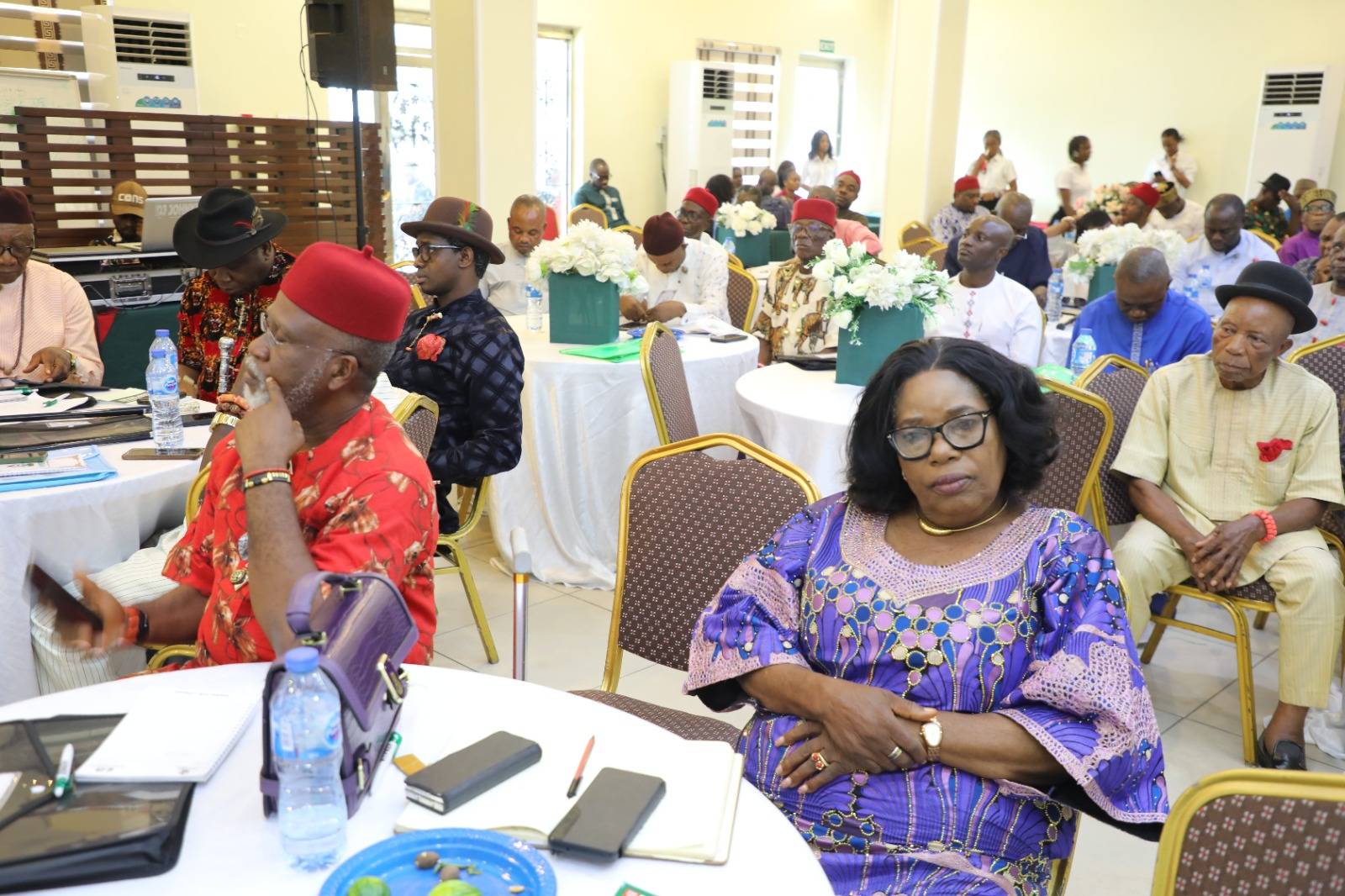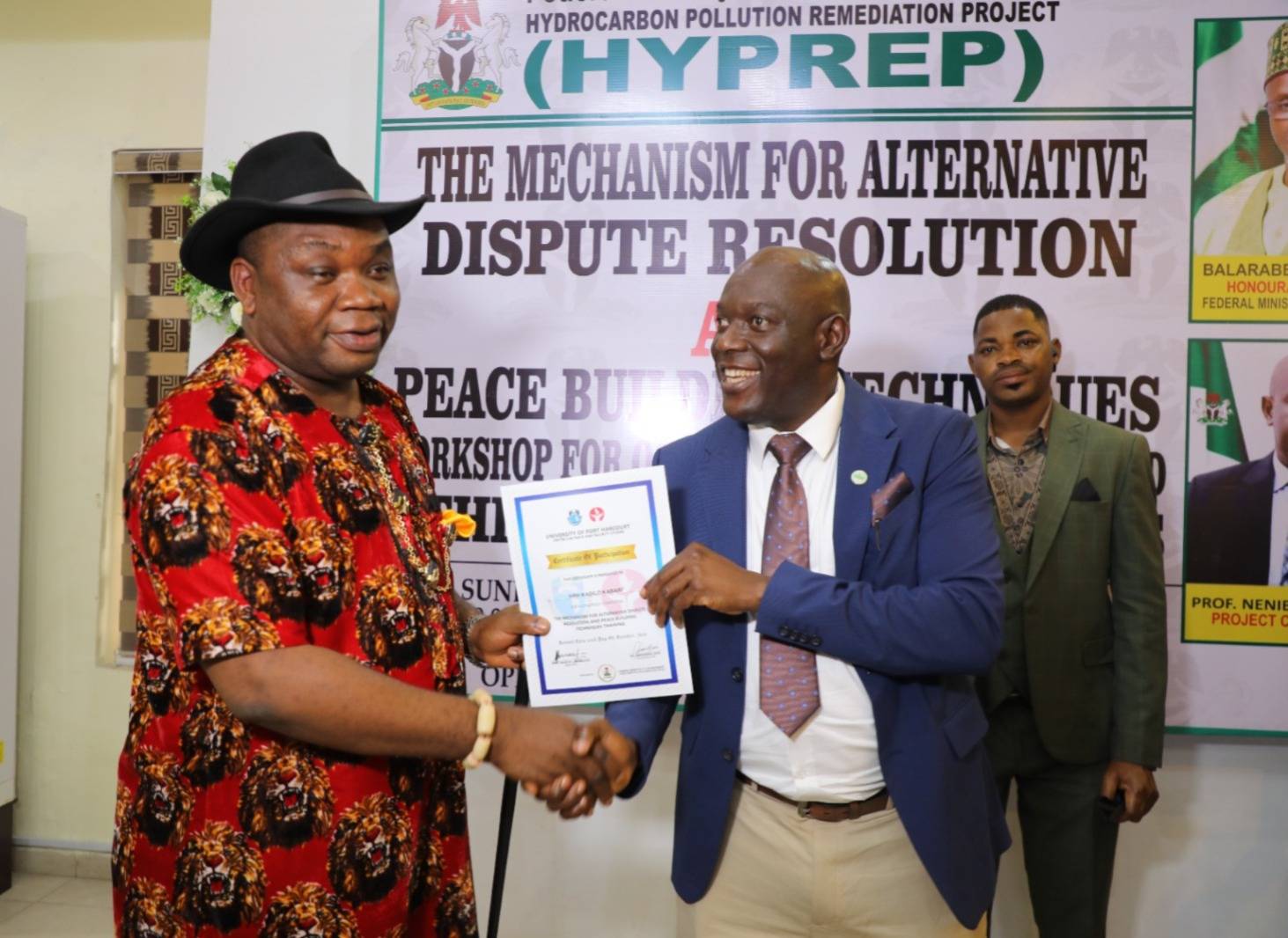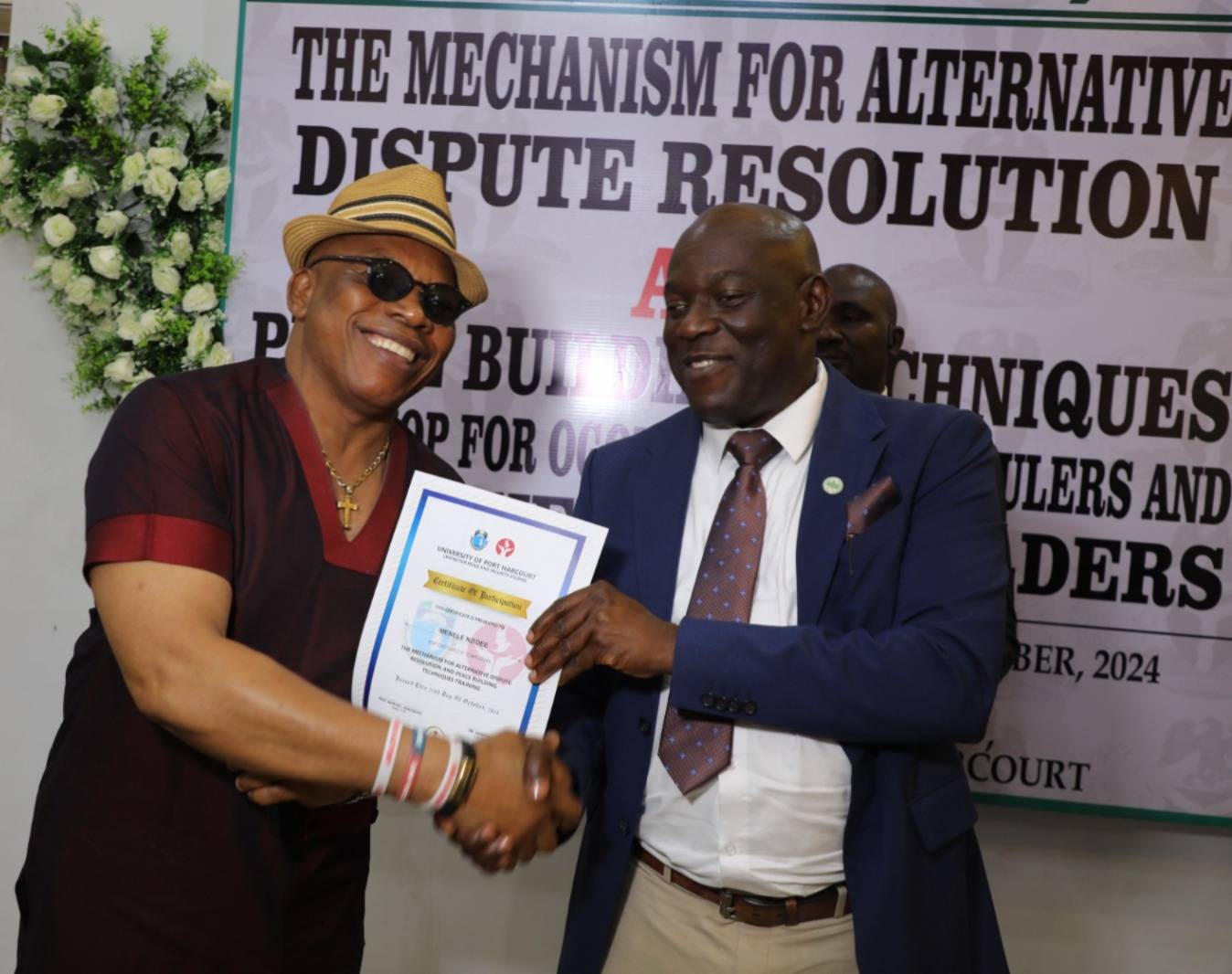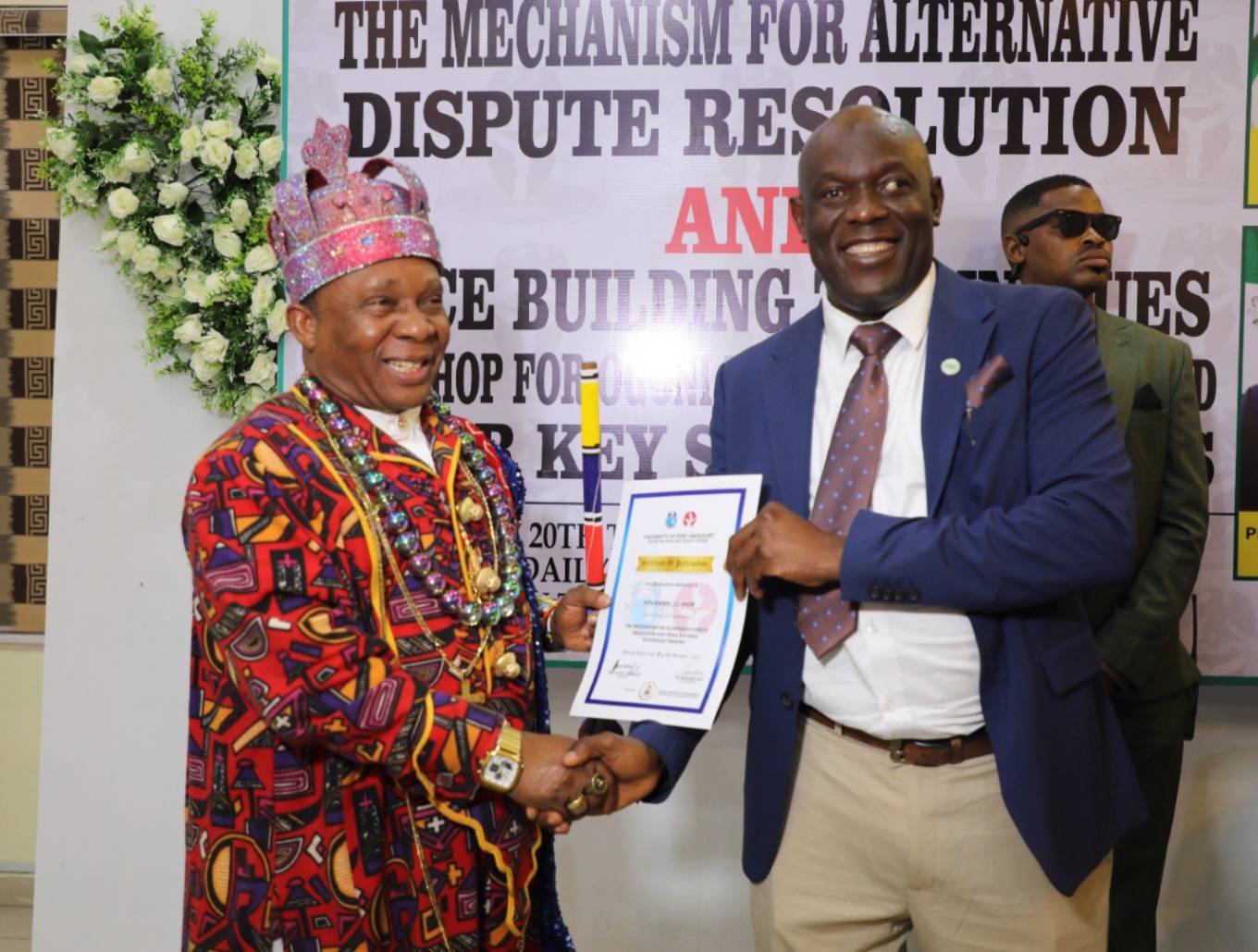Traditional rulers have been reminded of their critical roles as peace builders for the needed development in Ogoni communities, especially as the Hydrocarbon Pollution Remediation Project (HYPREP) has identified them as active stakeholders in creating the congenial atmosphere for effective project implementation in the region.
Project Coordinator of HYPREP, Professor Nenibarini Zabbey, speaking at a two-day retreat on Mechanism for Alternative Dispute Resolution and Peacebuilding Techniques for Ogoni Traditional Rulers and other Key Stakeholders in Port Harcourt, emphasized the importance of fostering peace and unity in Ogoniland through the institutionalization of alternative dispute resolution in addition to other traditional peacebuilding techniques.
The workshop aimed at equipping Ogoni traditional rulers and other key stakeholders with the tools needed to create an atmosphere of peace and understanding particularly in HYPREP’s area of operation, allowing the Project’s successful implementation and development to flourish for the common good of the Ogoni people.
While recognizing traditional ruler as peace ambassadors and gate keepers in the communities, Professor Zabbey noted that they play influential roles to ensuring that stakeholders align with the goals of HYPREP, adding that they can ‘mediate conflicts, unite divided factions, build bridges for progress and encourage dialogue among all parties in the public interest’
He attributed the milestone recorded on the Project in the areas of livelihood where over 7000 Ogoni youths and women are directly employed at various HYPREP sites, the construction of water facilities across Ogoniland, construction of the Centre of Excellence for Environmental Restoration (CEER), the construction of the Ogoni Specialist Hospital and other health intervention efforts, the Ogoni Power Project, the commencement of scholarship for 300 Ogoni post graduate students in Masters and PhD programmes, among others to the sustained collaboration and support of the Ogoni community, especially the traditional institution in the area.
According to the PC:
‘’The success of HYPREP’s operations and projects is directly tied to the level of peace, unity and support we can cultivate among our people. Ogoniland’s restoration and its communities’ development will be hindered without peace. Only through collective action can we overcome the challenges before us and fully realize the benefits of a clean, restored environment that supports economic growth, improved health, and a better quality of life for our people’’
Furthermore, Professor Zabbey stated that the Project is concerned about the factionalization of community-based groups and the sustained pressure for recognition, community leadership tussles, incidences of restricted access to sites, malicious spreading of misinformation through radio/TV broadcasts, social media and other unwholesome acts targeted at discrediting the efforts of HYPREP threaten to derail the Project if not checked, maintaining that it is a neutral party seeking the good of all Ogonis, and cannot take sides as it will defeat its goal of uniting the communities for the common good of the region.
He urged the monarchs and stakeholders to build bridges of understanding to address challenges within their jurisdiction as their leadership and integrity would ensure progress and development thrive in Ogoniland.
The workshop which was facilitated by the University of Port Harcourt Centre for Peace and Security Studies had over 100 traditional rulers and stakeholders including the Kings of Gokana, Khana, Tai and Eleme in attendance. The gesture conforms with HYPREP’s peace-building mandate in Ogoniland.
